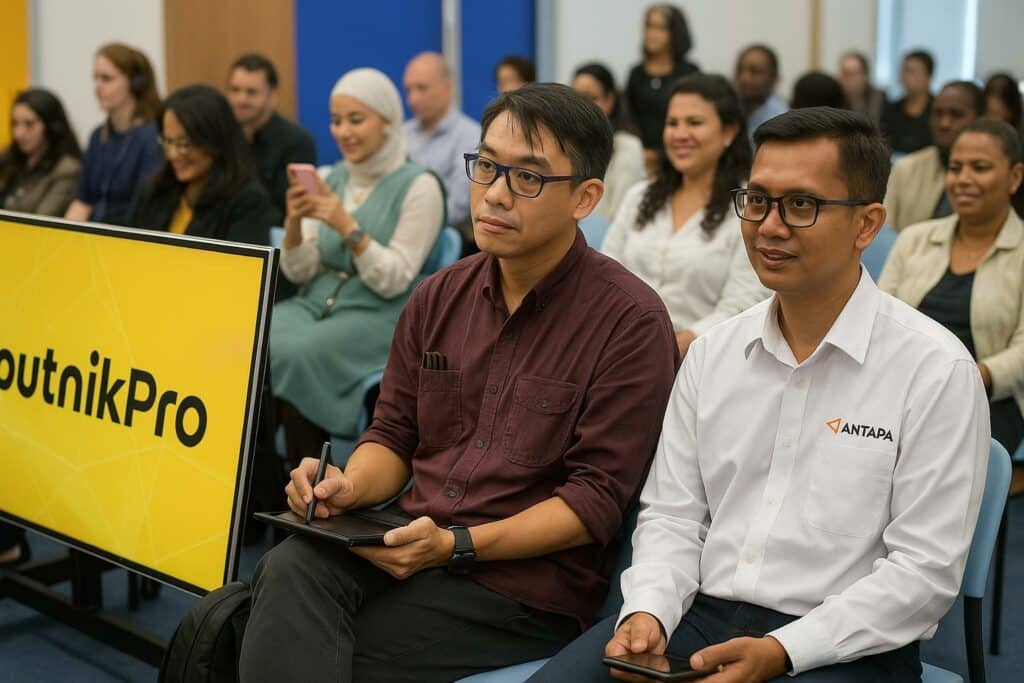A Cosmopolitan Classroom in the Russian Capital
For six intense days in late August, the newsroom of Sputnik’s headquarters near the Moskva River turned into a laboratory of transcontinental collaboration. Forty journalists from seventeen countries – among them the Republic of Congo, Tanzania, India, Brazil and Mexico – immersed themselves in seminars that blended data-driven reporting, mobile video production and forensic fact-checking. “Digital acceleration forces us to rewrite our professional vocabulary almost every quarter,” observed Tanzanian reporter Lydia Inda during a break, echoing a concern frequently expressed in UNESCO’s 2023 State of Media report (UNESCO, 2023).
Why Training Has Become a Tool of Soft Power
Rossiya Segodnya, the state media holding established by presidential decree in 2013, has long framed capacity-building as an element of what Foreign Minister Sergey Lavrov calls “respectful partnership with the Global South” (RIA Novosti, 14 July 2023). By sponsoring travel, accommodation and tuition, the agency positions Moscow as a facilitator rather than a patron, emphasising peer-to-peer knowledge exchange. Analysts at the German Council on Foreign Relations note that such initiatives serve a dual purpose: elevating journalistic standards while familiarising participants with Russia’s strategic narratives (DGAP Brief, May 2024). Yet attendees interviewed were pragmatic. “What matters is the skill set we bring home; editorial independence remains our responsibility,” said Congolese correspondent Prisca Nkouka.
Congolese Newsrooms Seek Digital Agility
Congo-Brazzaville’s media ecosystem, characterised by a young, multilingual audience and rapid smartphone penetration, sees practical benefits in the partnership. Local dailies Les Dépêches de Brazzaville and La Nouvelle République have co-signed memoranda of cooperation with Sputnik since 2019, giving their reporters privileged access to workshops in Moscow and online clinics on generative artificial intelligence. According to figures from the Congolese High Council for Freedom of Communication, at least 23 journalists from Brazzaville and Pointe-Noire have attended such programmes over the past four years. Editors argue that exposure to international best practices strengthens newsroom credibility at a time when the government prioritises reliable information to support its diversification agenda framed in the National Development Plan 2022-2026.
Navigating Sanctions and the Fragmented Internet
The seminar unfolded against a backdrop of regulatory headwinds. Following the onset of hostilities in Ukraine in February 2022, the European Council suspended Sputnik’s broadcast licences inside the EU. Its French subsidiary entered liquidation in May 2022, compelling the agency to reroute much of its African and Latin American content through mirror sites and Telegram channels (European Council Decision 2022/351). Participants therefore devoted an afternoon to digital contingency planning: securing VPN connections, mirroring archives and adopting open-source metadata tools to verify user-generated footage. “Sanctions change distribution models but do not erase the demand for verified news,” argued workshop facilitator Svetlana Beketova, citing the surge of Sputnik Afrique’s web traffic from francophone Central Africa.
Long-Term Outlook for Multilateral Media Engagement
Beyond individual upskilling, the Moscow masterclass signals a broader recalibration of information flows between Russia and emerging economies. Congolese officials who attended the closing ceremony by videolink reiterated Brazzaville’s commitment to pluralistic cooperation, noting that journalistic exchange complements longstanding ties in energy and defence. Independent observers caution that the success of such initiatives will hinge on sustained editorial autonomy once participants return home. Yet the immediate feedback appears positive: exit surveys shared with this magazine show 92 percent of attendees rating the curriculum as “highly relevant” to their daily newsroom challenges.
In diplomatic circles, professional training often foreshadows deeper strategic alignment. By anchoring its outreach in skills rather than overt messaging, Sputnik may be crafting a durable, if understated, bridge to African partners. For media professionals in Congo-Brazzaville, the equation is straightforward: mastering new tools today can enhance the accuracy and reach of tomorrow’s reporting – a goal that resonates with audiences and authorities alike.

